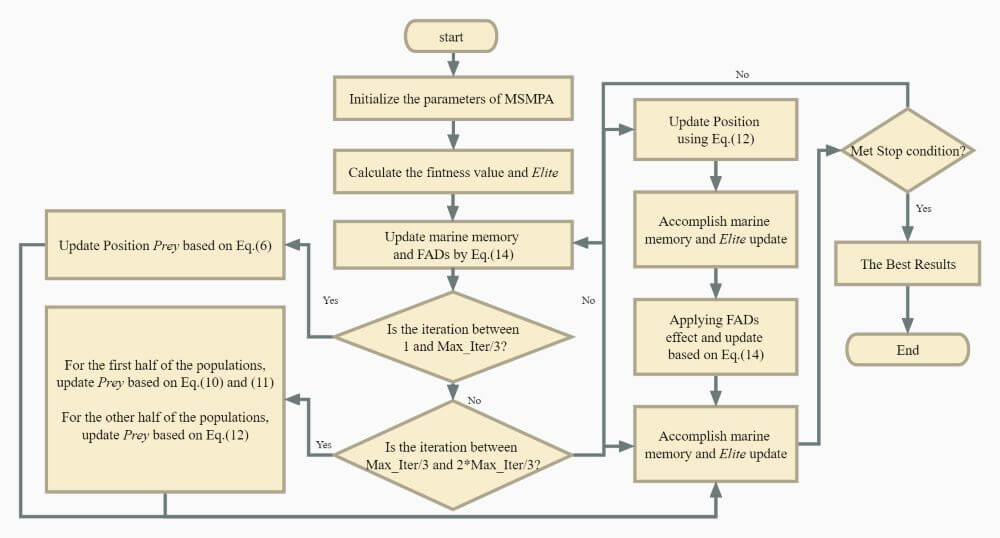 Open Access
Open Access
ARTICLE
Multi-Stage Improvement of Marine Predators Algorithm and Its Application
School of Mathematics and Information Science, North Minzu University, Yinchuan, 750021, China
* Corresponding Author: Baole Han. Email:
(This article belongs to the Special Issue: Application of Computer Tools in the Study of Mathematical Problems)
Computer Modeling in Engineering & Sciences 2023, 136(3), 3097-3119. https://doi.org/10.32604/cmes.2023.026643
Received 17 September 2022; Accepted 25 November 2022; Issue published 09 March 2023
Abstract
The metaheuristic algorithms are widely used in solving the parameters of the optimization problem. The marine predators algorithm (MPA) is a novel population-based intelligent algorithm. Although MPA has shown a talented foraging strategy, it still needs a balance of exploration and exploitation. Therefore, a multi-stage improvement of marine predators algorithm (MSMPA) is proposed in this paper. The algorithm retains the advantage of multi-stage search and introduces a linear flight strategy in the middle stage to enhance the interaction between predators. Predators further away from the historical optimum are required to move, increasing the exploration capability of the algorithm. In the middle and late stages, the search mechanism of particle swarm optimization (PSO) is inserted, which enhances the exploitation capability of the algorithm. This means that the stochasticity is decreased, that is the optimal region where predators jumping out is effectively stifled. At the same time, self-adjusting weight is used to regulate the convergence speed of the algorithm, which can balance the exploration and exploitation capability of the algorithm. The algorithm is applied to different types of CEC2017 benchmark test functions and three multidimensional nonlinear structure design optimization problems, compared with other recent algorithms. The results show that the convergence speed and accuracy of MSMPA are significantly better than that of the comparison algorithms.Graphic Abstract

Keywords
Cite This Article
 Copyright © 2023 The Author(s). Published by Tech Science Press.
Copyright © 2023 The Author(s). Published by Tech Science Press.This work is licensed under a Creative Commons Attribution 4.0 International License , which permits unrestricted use, distribution, and reproduction in any medium, provided the original work is properly cited.


 Submit a Paper
Submit a Paper Propose a Special lssue
Propose a Special lssue View Full Text
View Full Text Download PDF
Download PDF Downloads
Downloads
 Citation Tools
Citation Tools